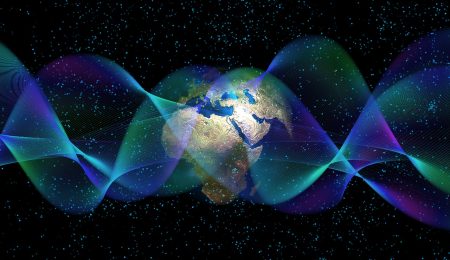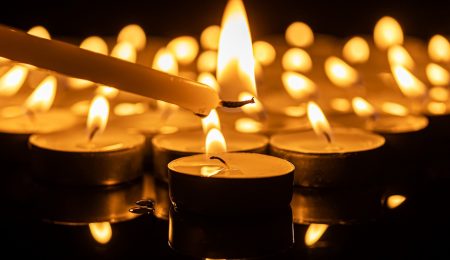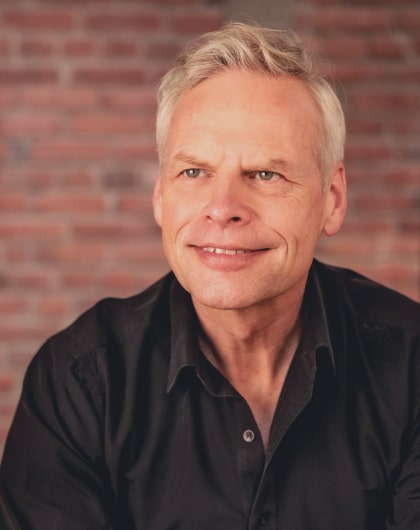Q1: I experience that the filters I used to have in my self are gone. The intensity is really quick to show. So that has to do with the middle ground being gone?
John: The middle ground is when you’re able to have a blend of what you know the truth of and just something of your self. The more of a blend you have, the more of a buffer you have between what you know and your self. When that buffer zone has been removed, then you simply have what you know and your conditioning. If you’re not in the knowing, you’ll be in the conditioning that you haven’t integrated.
Q1: So it’s an opportunity to integrate everything that I haven’t dealt with?
John: By being what you know in it. There is a lot of fire in that.
Q1: Sometimes it’s very quick. Things that in the past I would have much more space for, now it seems like, “no, this is not right anymore.” But the response comes like a fire.
John: Let the fire that comes up burn what is in your self instead of using that to burn something else, so then not making the fire personal.
Q1: Is it true that we can’t let things be the way they used to be? Even about the meetings. Like the way some people talk in the meetings. It’s like “what are you doing? We can’t do that anymore.”
John: That part is different than an urgency, that’s more like the time is up. There isn’t time for that anymore.
Q1: And what is the connection to the subconsciousness? It seems like the middle ground is connected with my subconsciousness? Is that still within the realm of the self?
John: Your subconsciousness is your self.
Q1: It is in the self?
John: It’s anything in your self that you haven’t seen or dealt with, so that can be of a truth or something of an untruth.
Q1: Since it is in the collective then it doesn’t really matter who deals with it?
John: One, more, and then everybody.
Q2: It’s like I’m getting to know my deeper engine. It’s like on the first fishing vessel that I worked on and you had to start it with ignition and with air and then it could start, but it could also run in reverse. It seems to me that it is in the heart that the decision is made. Is that so? Yeah. So I somehow can close my heart without really noticing it in the beginning and then from the result realize that now I have made some kind of closure? How does that relate to whether I’m in reverse or whether I’m in open or closed?
John: Yes.
Q3: It seems like the subconscious is a store-house of the past, but I once felt it open and it wasn’t horrifying. It was black and soft kind of. Is there anything you could say about either the function of the subconscious?
John: It’s the part of the self that holds what you’re not able to deal with, what you are able to deal with and what you don’t want to deal with.
Q4: So is it basically everything you’ve accumulated since you were alive or since you were in this body?
John: And it all has to be dealt with and as you move much deeper within it registers, what your homework is. If you’re to live being deeper within than your self, then you’ll have all of your self to deal with. That’s all of your subconsciousness.
Q4: Is that all the little choices where we stepped out?
John: Yes.
Q4: And do we bring it up or does it come up naturally?
John: Patterns will bring up the same principle time and again, even in different circumstances.
Q4: Could that be huge past experiences from when you were a baby?
John: Or miniscule.
Q4: Tiny little choices, every little choice. Is there a point where the subconscious actually gets emptied out and freed?
John: It becomes a part of your conscious self.
Q5: And how does the subconscious relate to the deeper engine?
John: The deeper engine is beneath the subconsciousness. The subconsciousness is then a filter to that deeper engine. For you to be in your real power you need to deal with your self and you need to deal with your subconsciousness. You need to deal with everything that’s in the basement of your self.
Q5: While I’m addressing and allowing aspects of my sub-conscious to come up there is a sense of more freedom and movement and life force. Is that just a little taste of that?
John: Yes.
Q6: With all this influence of the subconscious, I was wondering how or what is a real relationship with my body and what can I really be in my body?
John: Being real in your body, being in a way that is congruent with your own being in your body. Being real in your body is you being true to what you’re knowing in your heart. That changes the levels of your body.
Q6: Right, so there’s no set way in it?
John: There is a set way in it that’s at the very deepest, you as awareness, being true to what knowing is in the midst of whatever you’re in. It’s being free of what you’re experiencing in your self while you’re in your body, whether that’s negative or positive.
Q6: So the self plays a big part in the attachment to the body?
John: Yes. When you’re being what is deeper than your self, you’re integrating your self and you’re integrating that particular level of your own body. There are many different levels to your body.
Q6: Right, and do those levels include everything of what we are such as the subconscious and the heart?
John: Yes.
Q6: That’s all contained within the body? That’s good. Is there anything else you’d like to say about that? Is there anything you can say about the pulsing I’m experiencing or this coming up and going out and coming back in?
John: There’s a pulse to everything. There’s a pulse to what you have dealt with, what you are dealing with, what you haven’t dealt with, what you don’t want to deal with. There’s a pulse to every part of it and within all of the pulses there are all the pulses put together. There’s a rhythm.
Q6: Wow, and so that rhythm could even be part of cycles?
John: The pulse builds up what you haven’t dealt with. The pulse builds and your subconscious puts pressure on your experience.
Q6: Right and then you get to deal with it or not.
Q7: John, about being real in the body, you were saying it involves following what you know in your heart. What about the heart that’s hard or tight or closed?
John: That’s subsequent to what you know the truth of in your heart.
Q7: So you can still know, even though your heart is closed?
John: Yes.
Q7: So it doesn’t make you, at least in the self, sort of blind to what you know?
John: It will do that.
Q7: But you still can know with such a heart?
John: Yes.
Q7: Why is it knowing in the heart instead of just knowing as meaning then? What is it about the heart level?
John: The heart level is the first level where it’s physical. Your relationship, as awareness, with knowing meaning. If you haven’t dealt with your relationship with knowing in your heart, you won’t have the subtlety of awareness to be what meaning is and what’s deeper than your heart.
Q7: And that’s the same, if you haven’t dealt with it in your self, you can’t deal with it on the heart level and you can’t just go to preceding levels? That’s interesting because knowing as meaning would be pure and knowing as a being would be pure.
John: Knowing in your heart is where awareness is able to separate.
Q7: It’s the first place you can see the difference, the separation, and I know you’ve said this ten thousand ways, ten thousand times, but it’s simply back to the basics: opening and softening the heart makes knowing clear in the heart? Or is it the opening and softening that is the knowing in the heart? Or is that the facilitator for what you can know in your heart?
John: It’s the facilitator and it is also what you first know. It’s the most basic beingness and if you’re open to knowing, you’ll know to open and soften.
Q7: So if you did nothing else, that in itself is very important.
John: It’s crucial.
Q7: And then staying in that, as you were saying today, through whatever occurs in the self, that sustaining is what puts you through fire, puts you through all of the things that really take you to the deeper levels.
John: And it makes you bigger and bigger than your self. So it isn’t your experience in your self that you first listen to. Instead you would be governed by what you know in your heart.
Q7: And what is first in your heart is always openness and softness. Everything else can follow.
John: If you’re being that, then you’re being real because the realness is in what you know, not what you’re feeling or experiencing. Being real is first being sweetly uneventful.
Q7: Is being in your weakest weakness another way to say openness and softness? Is it an element of it or is it similar or the same thing?
John: Weakest weakness comes up within the openness and the softness and most particularly when you’re under the greatest pressure. When you’re not under any kind of pressure, it’s difficult to be what your weakest weakness is because you’re not needing that depth of resource. As you come under pressure and you’re going to be what you’re knowing in your heart, that has you drawing from resources within that have nothing to do with your self. So you’d be drawing upon a deeper weakness within.
Q7: So the openness and softness is like a doorway?
John: It is.
Q7: And that’s where honesty ties in because if you don’t know if you’re open and soft, just be honest and see and then you can know to move.
John: Fundamental honesty puts you into relationship with knowing. An honesty that’s subsequent to that puts you into relationship with what you’re feeling or to what you’re thinking. So you’ll be honest to your feelings and to your thinking, which isn’t the most important honesty.
Q7: And do we know openness and softness because that’s what a being is? That’s what knowing is?
John: That’s what a being is.
Q7: That’s why we know it fundamentally.
John: Yes.
Q7: And a being can’t be anything other than that.
John: Yes.
Q7: When you say be what you first know, that’s really what we are. You’re calling us to be what we first know which is this characteristic of openness and softness in beingness and on all levels?
John: Yes.
.
Q7: Interesting that you go back to that it’s not about the complexity; it’s about going back to what is simple and first and easy and seamless.
John: Yes.
Q7: That’s what I find amazing about you, all the stories about you arise from other people. You are just simply, from what I’ve seen and heard you say, it seems you are just in it in a very humble and simple and uneventful way and it’s just matter of fact.







